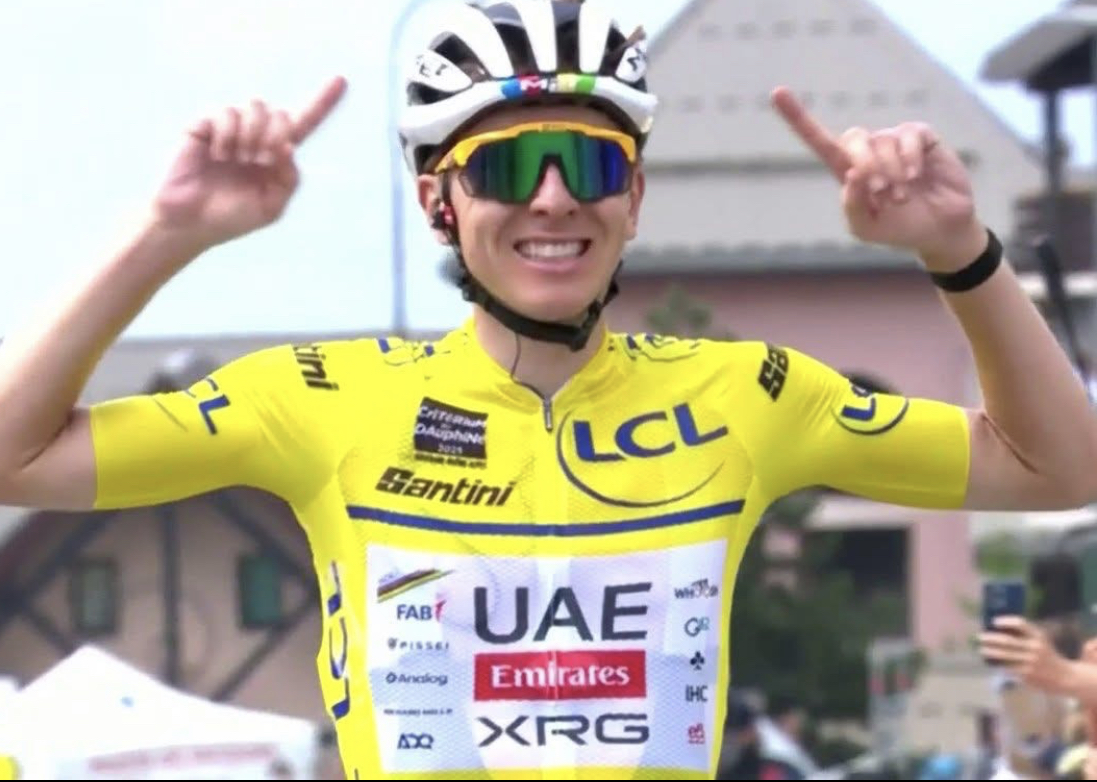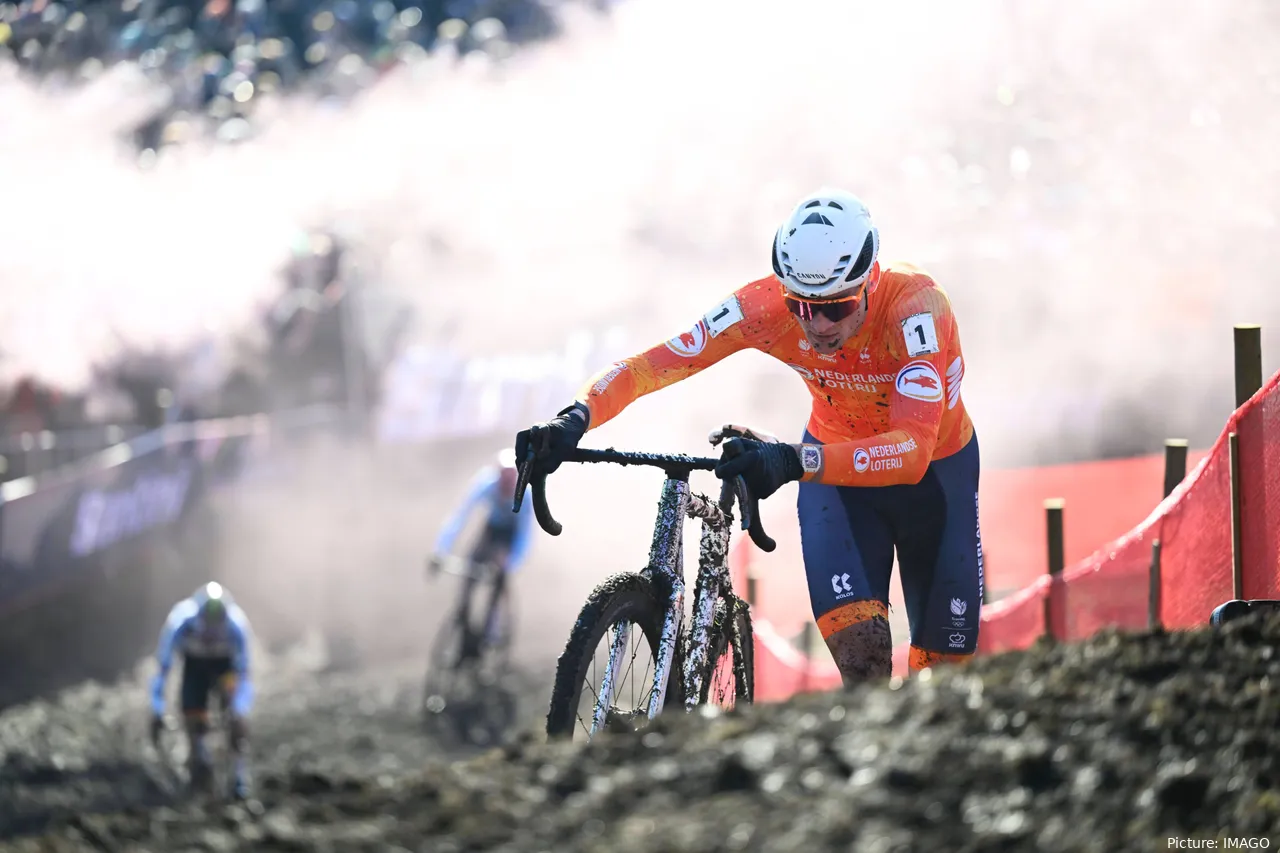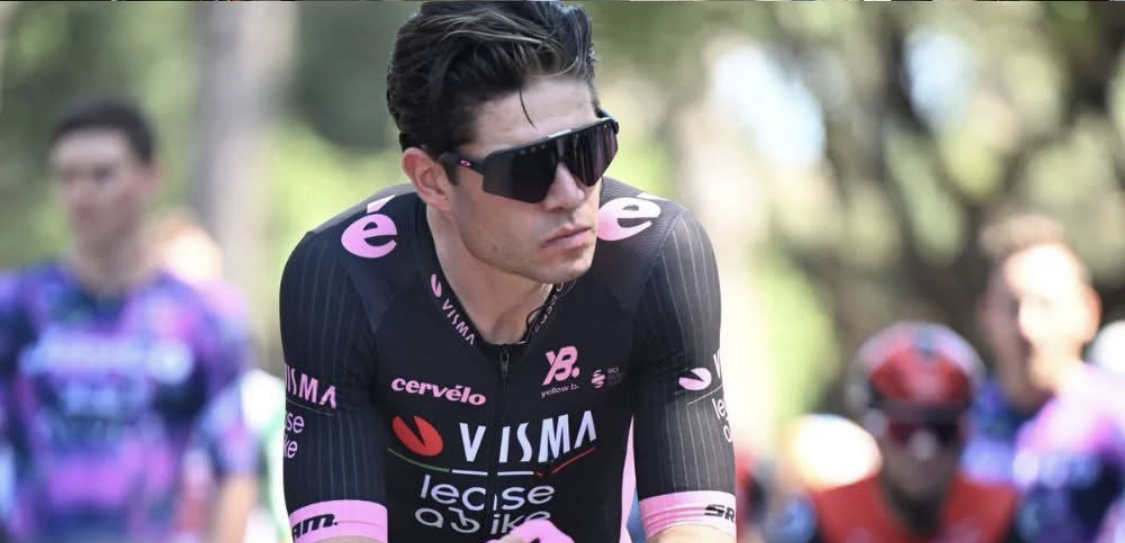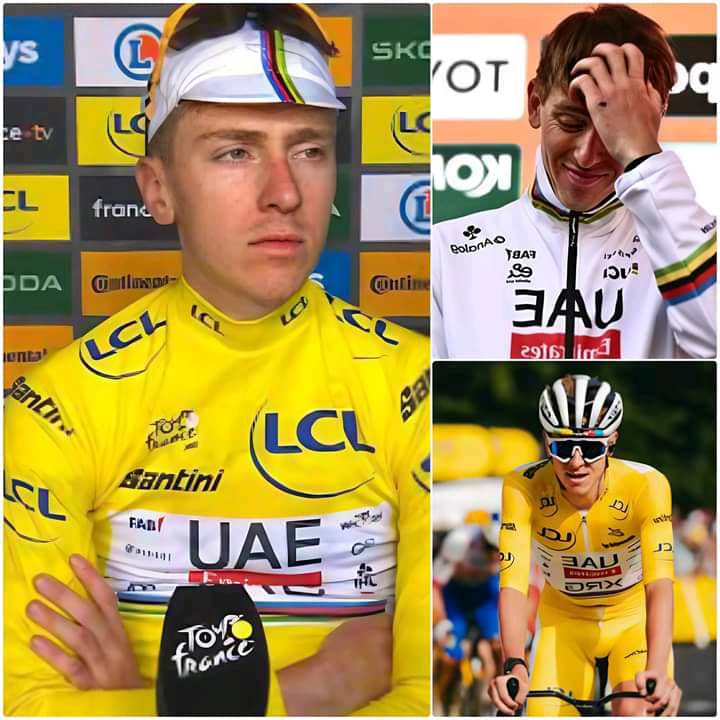**”I Did Not Like That. But It’s Modern Cycling”: Tadej Pogacar’s Reaction to Visma’s Strategy on Stage 7 of the Dauphine**
Cycling has undergone a seismic transformation over the past decade. From the classic solo breakaways and team tactics rooted in tradition, modern professional cycling now features intricate strategies, technological advancements, and a highly calculated approach to race management. At the heart of this evolution are teams that employ sophisticated tactics to maximize their chances of victory, sometimes leading to moments of tension, controversy, and debate among riders, fans, and experts alike.
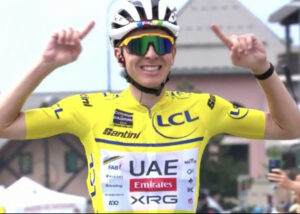
One such moment occurred during Stage 7 of a the Critérium du Dauphiné, a prestigious race serving as a key prelude to the Tour de France. Tadej Pogacar, reigning Tour de France champion and one of the most talented cyclists of his generation, expressed his dissatisfaction with Visma’s race strategy, stating simply, “I did not like that. But it’s modern cycling.” This remark encapsulates the complex realities of contemporary professional racing—where teamwork, strategy, and individual ambitions often intertwine in unpredictable ways.
*Background: The Dauphiné and Its Significance*
The Critérium du Dauphiné is often regarded as a testing ground for Tour de France contenders. With challenging mountain stages, time trials, and unpredictable weather, it offers a glimpse into form, tactics, and team dynamics. Riders like Pogacar use this race to fine-tune their preparations, while teams vie for strategic positioning.
Stage 7, in particular, was notable for its tactical intricacies. The race featured aggressive breakaways, relentless peloton pacing, and strategic team efforts aimed at positioning climbers and GC (General Classification) contenders.
*Pogacar’s Profile and Expectations*
Tadej Pogacar, a Slovenian prodigy, has established himself as a formidable force in modern cycling. Known for his aggressive riding style, exceptional climbing ability, and tactical intelligence, Pogacar has already claimed multiple major victories, including two Tour de France titles. His approach often combines relentless attack and meticulous team coordination.
Given his stature, Pogacar’s reactions to team tactics are closely watched. He values cohesive team effort and strategic clarity, especially when competing against well-organized teams with their own agendas.
*Visma’s Strategy: The Context*
Visma, a prominent team in the WorldTour peloton, is renowned for its tactical discipline and aggressive racing style. During Stage 7, Visma employed a strategy that involved a series of coordinated attacks and positioning maneuvers aimed at setting up their key riders for final climbs or sprint opportunities.
However, some of these tactics appeared to conflict with Pogacar’s own race plan or expectations. Perhaps they involved pulling the peloton at certain moments, launching attacks that Pogacar deemed unnecessary or poorly timed, or failing to support his efforts when he sought to make a decisive move.
*Pogacar’s Reaction: An Expression of Frustration*
Following the stage, Pogacar voiced his displeasure succinctly: “I did not like that. But it’s modern cycling.” This statement is telling. It reflects a mix of personal frustration—perhaps feeling that team strategy was counterproductive to his ambitions—and an acknowledgment that the sport has evolved.
The phrase “it’s modern cycling” suggests an acceptance that tactics have shifted from the traditional, more straightforward racing to a complex chess match involving multiple teams and players. It also hints at the reality that riders must adapt to new norms, even if they do not always agree with them.
*Analyzing the Tactics and the Discontent*
To understand Pogacar’s reaction, it’s essential to analyze the specific tactics employed during Stage 7:
1. **Team Pulling and Pacing**: Visma may have chosen to control the peloton by setting a high pace early on, possibly to deter attacks or to tire out opponents. Pogacar, known for his attacking nature, might have preferred a more conservative approach to conserve energy for the final climbs.
2. **Timing of Attacks**: If Visma launched attacks at moments when Pogacar was preparing to make his move, it could have disrupted his plan, leading to frustration.
3. **Lack of Support**: Pogacar’s team composition and the presence of other teams’ alliances influence race dynamics. If Visma’s tactics didn’t align with Pogacar’s goals or failed to support him when he attempted to attack, it could have contributed to his dissatisfaction.
4. **The Role of Strategy in Modern Cycling**: Today’s races involve complex interactions, including team tactics, psychological warfare, and strategic positioning. Riders often have to accept tactics they dislike if they serve the team’s overall goals.
*Modern Cycling: A Double-Edged Sword*
Pogacar’s comment underscores the paradox of modern cycling: while technology, data analytics, and strategic complexity have enhanced the sport, they have also made it less straightforward and more contentious.
– **Advantages**: Teams can optimize performance through detailed data, precise pacing, and coordinated attacks. Riders benefit from tactical discipline and support.
– **Challenges**: The sport becomes more politicized; disagreements over tactics can lead to frustration. The line between aggressive racing and tactical gamesmanship can blur, sometimes leading to accusations of unsportsmanlike conduct or overly cautious racing.
*The Psychological and Emotional Toll*
For riders like Pogacar, who thrive on attacking and controlling races, modern tactics can sometimes feel restrictive or frustrating. His reaction—“I did not like that”—reveals the emotional undercurrents that still run through the sport. Despite the strategic depth, racing remains a human endeavor, with feelings and reactions playing a vital role.
*Implications for Future Races*
Pogacar’s outspoken stance may influence team tactics moving forward. Riders and teams might need to balance strategic discipline with respecting individual ambitions. It also raises questions about the direction of modern cycling:
– Should teams prioritize collective strategy over individual attack opportunities?
– How much room is there for spontaneous racing versus pre-planned tactics?
– Will riders like Pogacar push back against overly cautious or manipulative tactics?
Embracing the Complexity*
Pogacar’s candid remark encapsulates the evolving landscape of professional cycling. “It’s modern cycling”—a phrase that acknowledges both the advancements and the frustrations inherent in the sport today. While tactics may sometimes clash with individual desires, they are integral to the sport’s progress.
As fans and observers, understanding these dynamics enhances our appreciation of the complexity behind every race. For Pogacar, as for many modern champions, adapting to this landscape is part of the challenge—and the allure—of contemporary cycling.
In the end, moments like these serve as reminders that behind the polished images and strategic plays are passionate athletes navigating a sport that is as much about human emotion as it is about speed and endurance.
